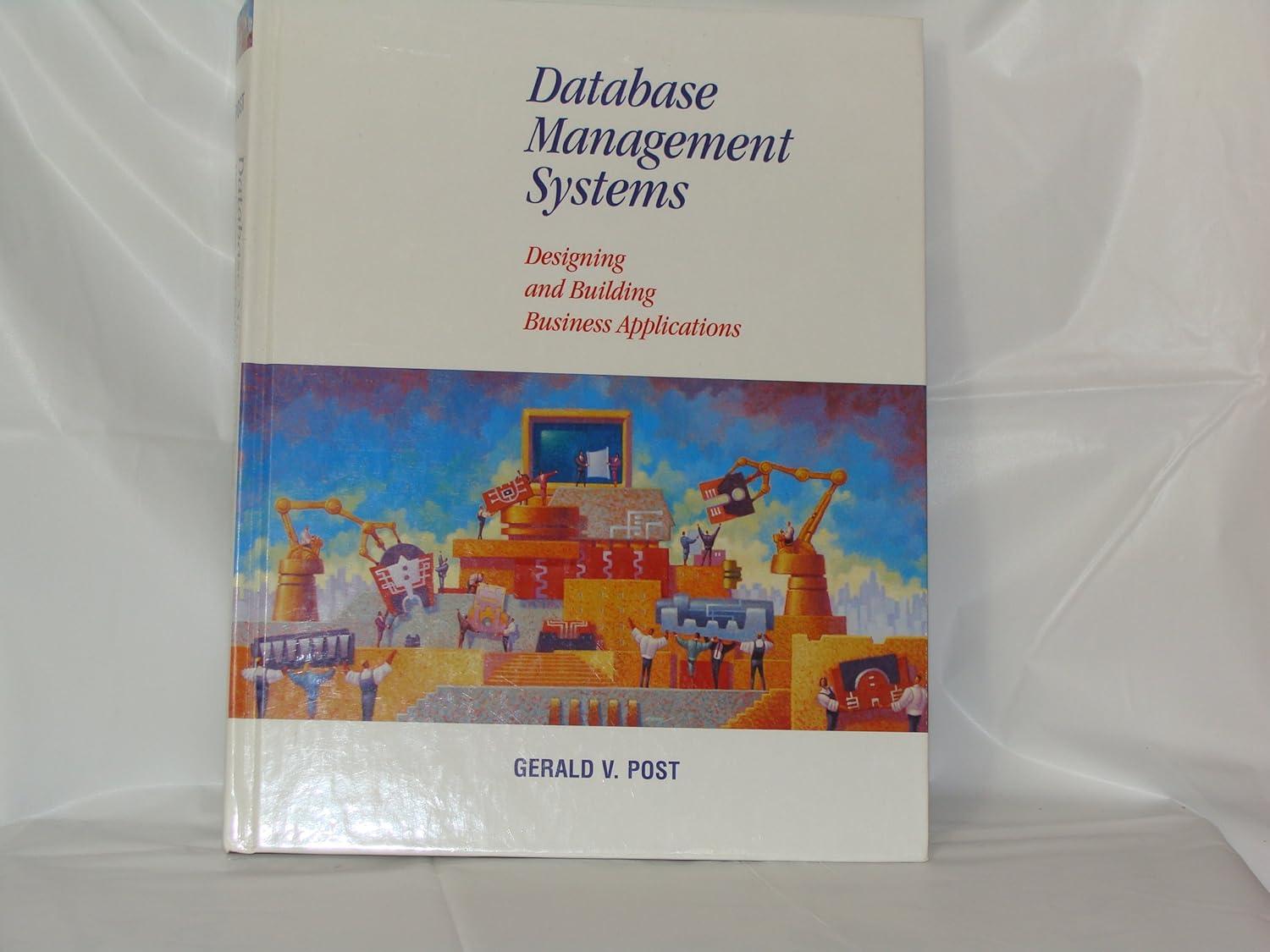Answered step by step
Verified Expert Solution
Question
1 Approved Answer
Read the case study carefully and answer ALL the questions in this section. Comparative Analysis of Real - Time Databases in Windows Operating System Environment
Read the case study carefully and answer ALL the questions in this section.
Comparative Analysis of RealTime Databases in Windows Operating System Environment
Realtime databases are essential in modern web and mobile application development, enabling
instantaneous data access and updates. For this case study we will examine two predominant realtime
database solutions namely, Firebase and MongoDB, focusing on their functionality, accessibility, and
performance within a Windows operating system environment.
Firebase, owned by Google, is a comprehensive development platform offering a realtime database as
a service. It caters to web and mobile applications, providing seamless data synchronization across all
clients in realtime. Some of the key features of Firebase include:
RealTime Synchronization: Firebase allows instant updates to data across all clients.
JavaScript Framework Support: Frameworks like AngularJS and Backbone.js simplify
database access.
REST API: Firebase's REST API supports HTTP requests for GET, PUT, POST, and
DELETE operations, enabling easy data manipulation and retrieval.
Whilst Firebases the primary focus is on web and mobile applications, it offers crossplatform support
allowing it to be accessible from any environment that supports HTTP requests, including Windows.
MongoDB, developed by MongoDB Inc., is designed for highvolume data storage with advanced features
like indexing and file storage. It supports various editions and architectures, catering to diverse application
needs. Some of the key features of MongDB includes:
Scalability: MongoDB efficiently handles large datasets, making it suitable for applications
with extensive data requirements.
Indexing: Advanced indexing capabilities enhance query performance.
File Storage: Embedded file storage capabilities support a wide range of data types.
Like Firebase, MongDB offers cross platform support allowing it to run on multiple operating systems,
including Windows. Both Firebase and MongoDB has secured significant market shares due to their
robust features and versatility, positioning them as a competitive realtime database solution.
Comparative Analysis
Performance:
Firebase: Offers seamless realtime data synchronization, which is highly effective in scenarios requiring
instant data updates across multiple clients. Its performance is optimized for web and mobile applications
but might face limitations in handling extremely large datasets compared to MongoDB.
Internal Use
MongoDB: Excels in managing large volumes of data with advanced indexing and storage capabilities.
Its performance is robust in highvolume environments, making it ideal for applications with extensive and
complex data needs.
Scalability:
Firebase: Scales well for applications with moderate data volumes and realtime synchronization needs.
MongoDB: Provides superior scalability for large datasets, making it suitable for enterpriselevel
applications with extensive data storage requirements.
Ease of Use:
Firebase: The integration with JavaScript frameworks and REST API makes Firebase easy to implement
for developers, especially those focused on web and mobile development.
MongoDB: While slightly more complex to set up MongoDB offers extensive documentation and
community support, ensuring that developers can effectively utilize its features.
The past decade has seen a proliferation of different data types including audio, text, and video.
Consequently, tier database structures were not able to sustain this growth and varied data types. This
has resulted in the adoption of a tier architecture which has grown exponentially across all industries.
Provide a contrast between a schema and a subschema utilised in database management. Marks
Analyse how a multivalued attribute is achieved. Marks
Provide a detailed discussion on tier architecture.
Step by Step Solution
There are 3 Steps involved in it
Step: 1

Get Instant Access to Expert-Tailored Solutions
See step-by-step solutions with expert insights and AI powered tools for academic success
Step: 2

Step: 3

Ace Your Homework with AI
Get the answers you need in no time with our AI-driven, step-by-step assistance
Get Started


